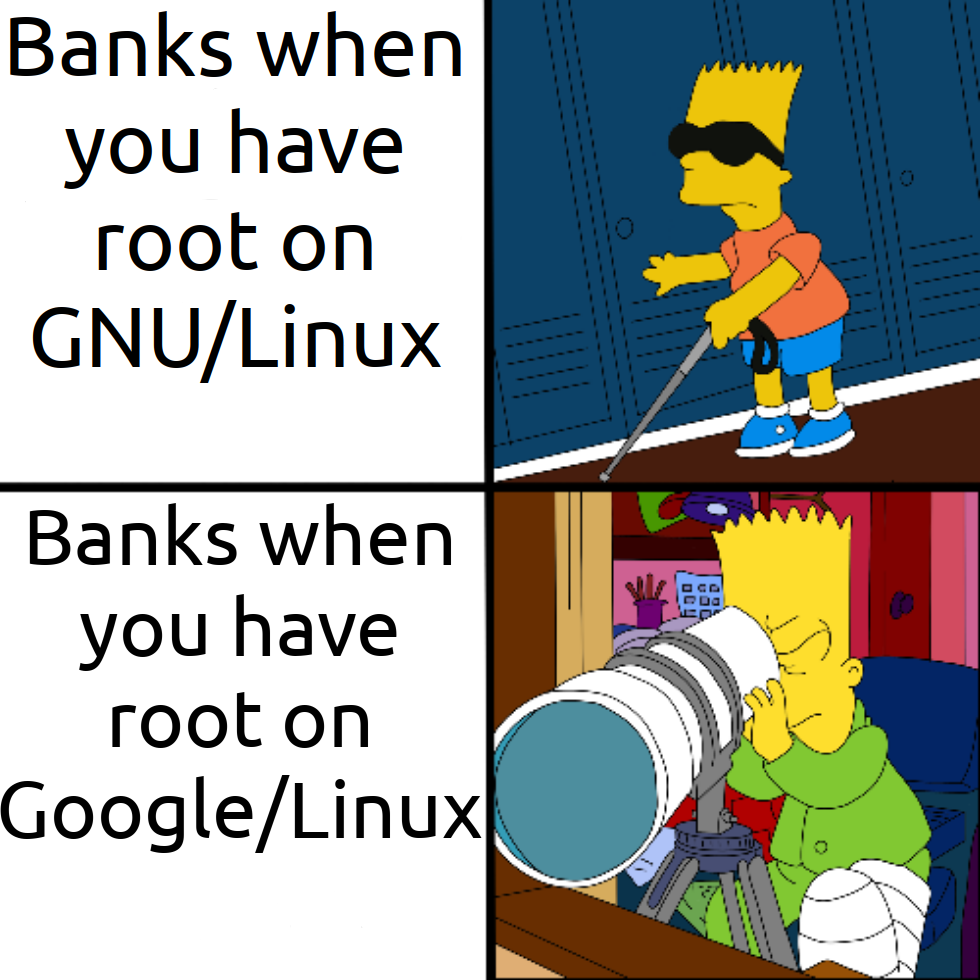this post was submitted on 04 Apr 2024
1020 points (98.8% liked)
linuxmemes
21736 readers
1658 users here now
Hint: :q!
Sister communities:
Community rules (click to expand)
1. Follow the site-wide rules
- Instance-wide TOS: https://legal.lemmy.world/tos/
- Lemmy code of conduct: https://join-lemmy.org/docs/code_of_conduct.html
2. Be civil
- Understand the difference between a joke and an insult.
- Do not harrass or attack members of the community for any reason.
- Leave remarks of "peasantry" to the PCMR community. If you dislike an OS/service/application, attack the thing you dislike, not the individuals who use it. Some people may not have a choice.
- Bigotry will not be tolerated.
- These rules are somewhat loosened when the subject is a public figure. Still, do not attack their person or incite harrassment.
3. Post Linux-related content
- Including Unix and BSD.
- Non-Linux content is acceptable as long as it makes a reference to Linux. For example, the poorly made mockery of
sudoin Windows. - No porn. Even if you watch it on a Linux machine.
4. No recent reposts
- Everybody uses Arch btw, can't quit Vim, <loves/tolerates/hates> systemd, and wants to interject for a moment. You can stop now.
Please report posts and comments that break these rules!
Important: never execute code or follow advice that you don't understand or can't verify, especially here. The word of the day is credibility. This is a meme community -- even the most helpful comments might just be shitposts that can damage your system. Be aware, be smart, don't fork-bomb your computer.
founded 2 years ago
MODERATORS
you are viewing a single comment's thread
view the rest of the comments
view the rest of the comments

I take your point, and I'm sure you're right about the banks' rationale, but in my own view it does not seem like it should be the banks' decision to make.
As soon as a bank offers any sort of fraud protection, though, security becomes a bank issue (in addition to a "you" issue).
Not at all saying I agree with the banks on this, but I think that may be part of the thinking.
This is a good point. The bank needs to do as much as they can to reduce fraud risk, and they've probably found some correlation between rooted phones and a higher likelihood of fraudulent transactions. Some banks block VPNs for a similar reason - when logging in from a VPN, it's harder for them to tell that it's actually you vs if it's an attacker that uses the same VPN service as you.
Your risk exposure is that you could lose your bank account balance. The banks risk exposure is that they could lose every bank account balance exploited by the same rooted phone vulnerability. So they evaluate risk differently than you do.